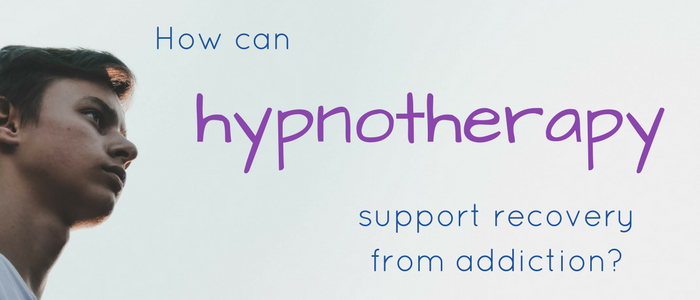
Any form of addiction, whether it’s to drugs, alcohol, gambling, or even shopping, has the power to take control of someone’s life. Priorities shift, behaviours change and the person battling addiction may find themselves stuck in the addiction-recovery-relapse cycle.
Often these addictions form as a way to cope with difficult emotions or stressful life events. Substances like drugs and alcohol may be used as a form of self-medication and over time, a reliance is formed.
While difficult, recovery is always possible. There are several approaches available to help tackle addiction, including talking therapies like counselling. Hypnotherapy is another powerful approach that many find helpful.
We speak to hypnotherapist Dean Learoyd to explain further.
Whatever the presenting issue is in therapy of any kind, it is best practice to follow certain guidelines in order to get the best possible results. This has never been more appropriate than when dealing with addiction or compulsion.
In 1990, an American Psychologist Egan introduced ‘six stage counselling’ as the most effective road to recovery. The six stages lend themselves perfectly to a hypnotherapy treatment plan. Here is how this model would work within hypnotherapy:
Stage 1 – Developing trust and rapport. In an assessment for hypnotherapy many practitioners engage NLP techniques to gain fairly rapid rapport. All therapists should have a genuine desire to help the client and that is the key, but the client needs to trust implicitly too. In any person dealing with addiction, there is inevitably hurt lying somewhere deep within.
Stage 2 – Getting to the root of the problem. Analytical hypnotherapy can elicit memories from deep within the subconscious mind that are indicators to guide the therapist towards the cause of the addiction. Also it is crucial to identify the secondary gain, i.e. what does the addiction give to the client in terms of benefit or gain? Once this has been established it will be easier for the therapist to replace that gain with something more positive and less harmful.
Stage 3 – Setting goals is much easier said than done, but with a powerful hypnotherapy session the client’s issues can be set out and ‘change’ goals very easily established by using deep suggestion therapy techniques. Metaphors are an effective way of getting the subconscious to buy into the task in hand and this can be easily delivered in a hypnosis session.
Stage 4 – Taking action and empowering change. Hypnotherapy is a powerful and effective way to introduce change directly into the subconscious mind. Hypnotherapy can successfully reframe the old addictive behaviour and introduce new positive, permanent habits to replace it.
Stage 5 – Maintaining and supporting the changes made. Hypnotherapy is a direct subconscious intervention and post hypnotic suggestion can be installed to make sure that the new behaviour remains effective and stays in place.
Stage 6 – Enabling the client to finish the course of therapy happy and confident that they will not relapse. Using hypnotherapy to install new positive behaviour and adding post hypnotic suggestion is a great way to prevent relapse. The new client behaviour will continue to reinforce long after the final session.
In all therapy there needs to be a genuine desire for change which, in addiction, often comes when the client has suffered a great deal and sometimes hits rock bottom. One of the most powerful benefits of using hypnotherapy with addiction is that often results can be quite rapid, and this tends to give the client more hope and encouragement.
If you’re interested in trying hypnotherapy for addiction, use our search tool to find a hypnotherapist in your area and start your journey to recovery.
No comments:
Post a Comment